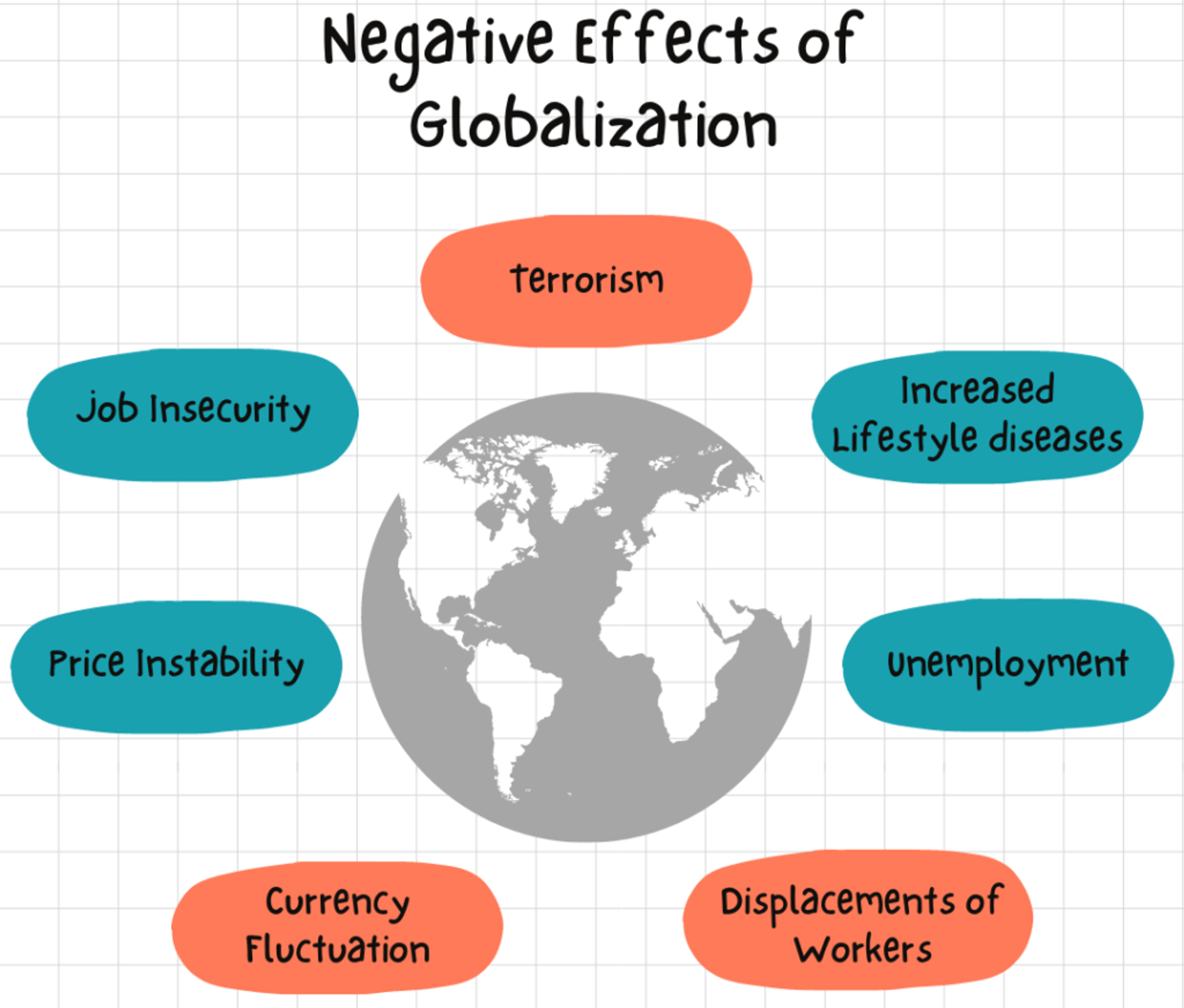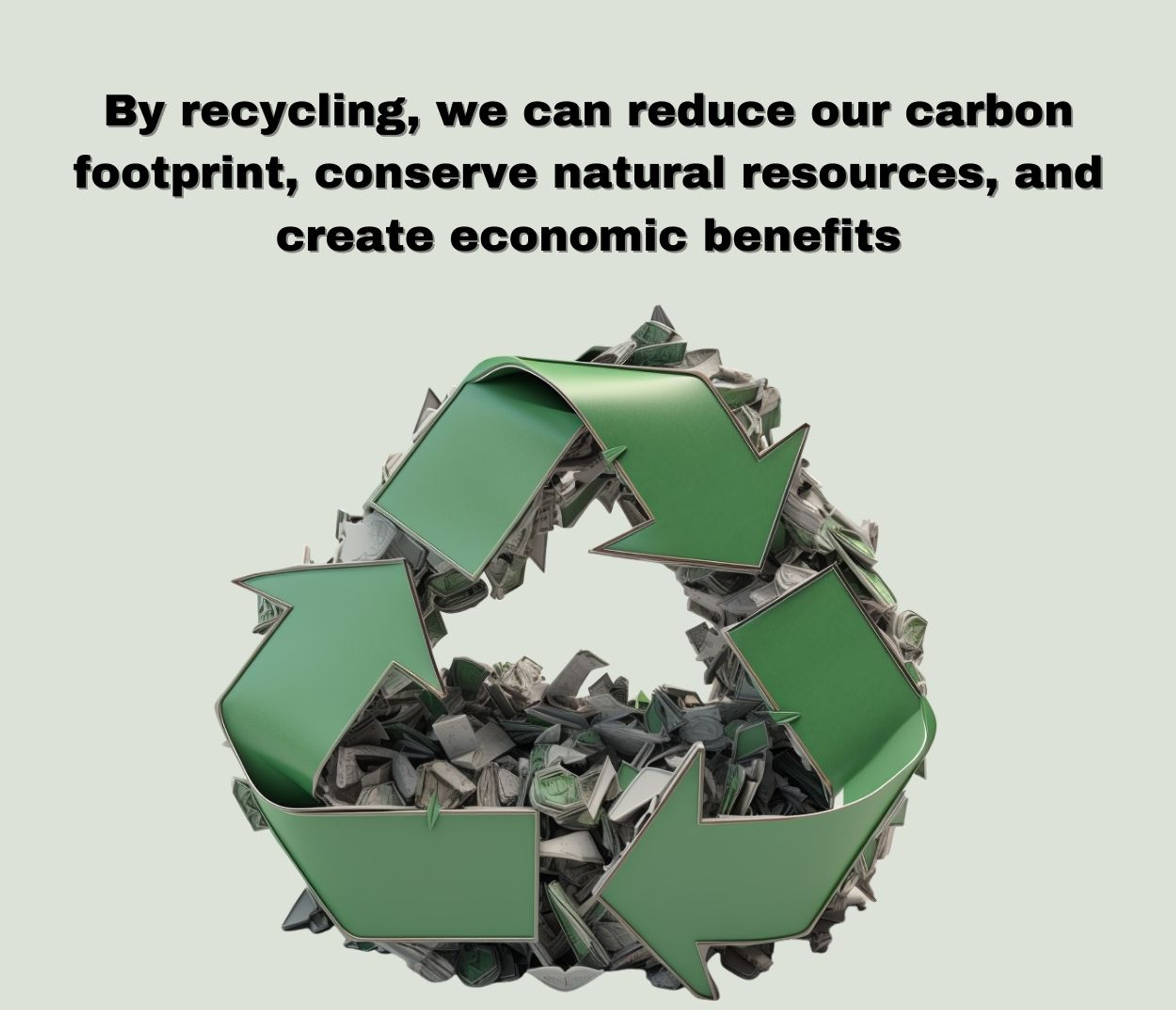Photo AI
Last Updated Sep 27, 2025
Ethical and Environmental Concerns Drive Localism and Awareness of Consumer Impacts Simplified Revision Notes for A-Level Edexcel Geography
Revision notes with simplified explanations to understand Ethical and Environmental Concerns Drive Localism and Awareness of Consumer Impacts quickly and effectively.
412+ students studying
Ethical and Environmental Concerns Drive Localism and Awareness of Consumer Impacts
Globalisation is Associated With A Range of Environmentals Stresses
🔗 It inevitably puts pressure on natural resources

-
**Positive and Negative Effects of Globalization***
Links Between Globalisation and Rising Environmental Insecurity
| Insecurity | Causes and Symptoms |
|---|---|
| Food | ● By 2050, food demand is likely to double worldwide ● Rising middle class • diet characterised by consumption of meat & dairy which has a large ecological footprint |
| Water | ● Food production also depletes water supplies ● Pastoral and agriculture is very water intensive ● Will increase with population growth |
| Energy | ● 50% ↑ in global energy use is predicted by 2035 ● Increased use of fossil fuels is inevitable |
| Climate | ● Manufactured items w/ large production networks ● Energy hungry items such as TVs ● Throwaway society (pens, clothing etc) |
Localism
The response to globalisation with the aim of increasing local sustainability → Meeting the needs of the present without compromising the ability of future generations to meet their own needs
- Economic Sustainability - 🔗 Individuals and communities should have access to a reliable income over time
- Social Sustainability 🔗 All individuals should enjoy a reasonable QOL
- Environmental Sustainability 🔗No lasting damage should be done to the environment Benefits and Costs of Localism
| Benefits | Costs |
|---|---|
| ● Saves energy use (especially in transport) ● Reduces size of eco-footprint ● Encourages eco-friendly farming ● Provides alternatives for local people ● Improves social and cultural cooperation ● Supports local suppliers and businesses ● Keeps money within the local area ● Self-sufficient | ● Emissions from long-distance transport are often offset by more efficient production methods ● Local products may be of lower quality than available elsewhere ● Limited choice for local consumers ● Shortages of products at certain times due to local production cycles ● Local market may be unreliable so local business not sustained ● Prices of local products may be higher ● Reduces opportunities outside of the area |
Fairtrade and Ethical Consumption
↳ May reduce inequalities and environmental degradation and improve working conditions
Evaluation of Ethical Consumption Schemes
| Actions | Evaluation | |
|---|---|---|
| Fair Trade | ● Certification shows products have been produced by small-scale farms or businesses ● Produces receive a minimum fair price by operating as cooperatives and selling directly to the processing point or retailer ● Worker's rights are protected and no slave or child labout is used ● A Fairtrade premium is invested in local communities through improvements in healthcare, education etc | ● Lets shoppers know what they spend will find its way to the pockets of those in need But ● As the schemes grow it is harder to regulate ● Beginning to be forgotten about ● It is not possible for all the world farmers to join the scheme |
| Supply chain monitoring | ● Larger companies are accepting the need for corporate social responsibility ● Due to the large supply chains, they recognise that they need to try and keep a handle on them | ● Many large TNCs are making a big effort to reduce the amount of worker exploitation among other illegal actions in their factories But ● It is very hard for TNCs to control the actions of their suppliers |
| NGO monitoring | ● Involves charities flying workers over to the corporate meetings and allowing them to express their opinions ○ 📝 Eg. tesco meeting • no ladies toilet ∴ Tesco threatened to change supplier if conditions did not improve | ● Helps to raise awareness of many ethical issues ● The NGOs are not bias But ● NGOs have limited financial resources |
What is Ethical Consumption
Consumers can try to choose products and services that meet high ethical and environmental standards at the point of production. Such as:
- Safe working conditions
- Zero/limited pollution
- Sustainable farming
- Sustainable use of resources
- Sustainable forestry
- Animal welfare Consumers even have the power to stop using products and services that are known to go against the standards mentioned above.
Recycling and Resource Consumption
Local authorities play a key role in reducing waste and ecological footprints through recycling
↳ But the need for recycling could potentially be eradicated in the future through use of substitute materials such as graphene

-
**The Green Circle***
| Benefits | Costs |
|---|---|
| ● ↓ Amount of waste going into landfill ● Provides raw materials for production and consumption, ∴ ↓ need for new materials ● Makes the earth's resources last longer ● ↓ industry energy use, as some recycled materials use less energy in processing than the original raw materials ● ↓ Greenhouse gas emissions due to lower energy use ● ↓ Deforestation ● Creates new industries & ∴ jobs • helps to replace those lost due to deindustrialisation | ● Zero waste is not possible as some wastes cannot be easily/not at all recycled ● Some recycling technologies are more expensive than extracting and using original raw materials ● Developing countries cannot afford this ● Recycling principles need to be expanded 📝 • eg. grey water ● Urbanisation & ↑ incomes has ↑ amount of waste created ● Lifespan of electronic goods & recycling of their components needs to be improved ● Large variations in willingness and ability to recycle between countries ∴ difficult to achieve global agreement ● Recycling itself is very energy intensive |
500K+ Students Use These Powerful Tools to Master Ethical and Environmental Concerns Drive Localism and Awareness of Consumer Impacts For their A-Level Exams.
Enhance your understanding with flashcards, quizzes, and exams—designed to help you grasp key concepts, reinforce learning, and master any topic with confidence!
1059 flashcards
Flashcards on Ethical and Environmental Concerns Drive Localism and Awareness of Consumer Impacts
Revise key concepts with interactive flashcards.
Try Geography Flashcards26 quizzes
Quizzes on Ethical and Environmental Concerns Drive Localism and Awareness of Consumer Impacts
Test your knowledge with fun and engaging quizzes.
Try Geography Quizzes29 questions
Exam questions on Ethical and Environmental Concerns Drive Localism and Awareness of Consumer Impacts
Boost your confidence with real exam questions.
Try Geography Questions27 exams created
Exam Builder on Ethical and Environmental Concerns Drive Localism and Awareness of Consumer Impacts
Create custom exams across topics for better practice!
Try Geography exam builder22 papers
Past Papers on Ethical and Environmental Concerns Drive Localism and Awareness of Consumer Impacts
Practice past papers to reinforce exam experience.
Try Geography Past PapersOther Revision Notes related to Ethical and Environmental Concerns Drive Localism and Awareness of Consumer Impacts you should explore
Discover More Revision Notes Related to Ethical and Environmental Concerns Drive Localism and Awareness of Consumer Impacts to Deepen Your Understanding and Improve Your Mastery
96%
114 rated
Topic 3: Globalisation
Globalisation Accelerated by Advances in Transport, Communication, and Business
357+ studying
200KViews96%
114 rated
Topic 3: Globalisation
Political and economic decisions: acceleration of globalisation
217+ studying
180KViews96%
114 rated
Topic 3: Globalisation
Case Study → Open Door policy - China, 1978
381+ studying
184KViews